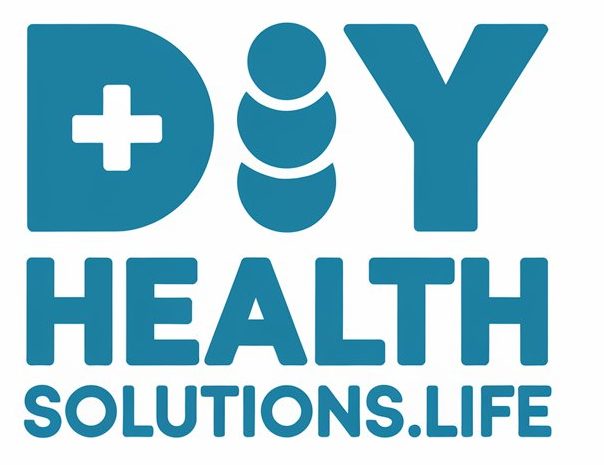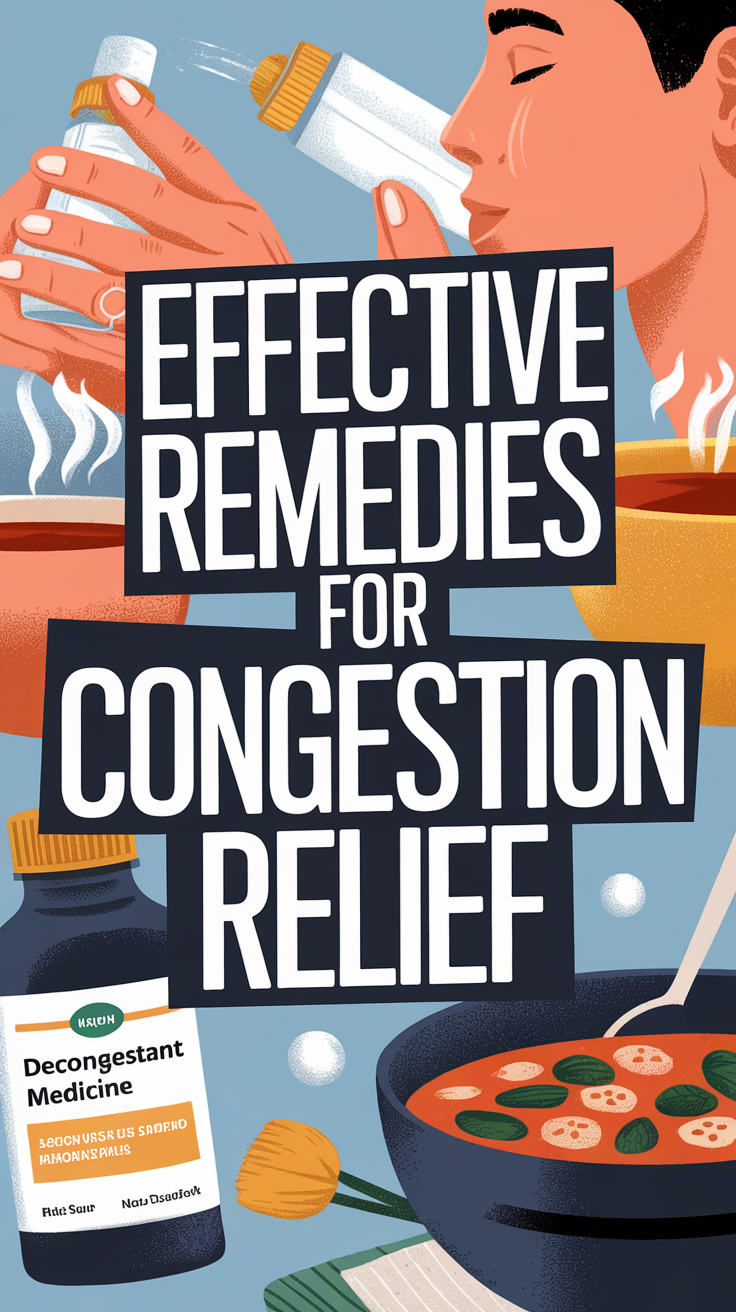Effective Remedies for Congestion Relief
You can find effective relief from congestion with a mix of remedies. Try herbal teas like peppermint or ginger to soothe your throat, and consider steaming for easy breathing. Eating spicy foods can help thin mucus, while staying hydrated is vital, so drink plenty of water. Over-the-counter options like nasal sprays and decongestants can provide quick relief, but use them short-term. Incorporating essential oils, such as eucalyptus and peppermint, into your routine can also boost your relief. These methods don’t just ease congestion—they can enhance your overall well-being too, leading to even more options you’ll want to explore.
Key Takeaways
- Herbal teas like peppermint and ginger can soothe the throat and open nasal passages, providing comfort and reducing inflammation.
- Steam inhalation helps thin mucus, eases breathing, and moisturizes nasal passages for easier expulsion.
- Over-the-counter nasal sprays and decongestant tablets offer quick relief by reducing nasal swelling; use them short-term for best results.
- Incorporating spicy foods and antioxidant-rich fruits supports mucus drainage and strengthens the immune system.
- Essential oils such as eucalyptus and peppermint can relieve congestion and enhance overall well-being through aromatherapy.
Natural Remedies
When it comes to finding relief from congestion, natural remedies can offer effective solutions without the side effects often associated with over-the-counter medications. One of the simplest yet powerful methods is to incorporate herbal teas into your daily routine.
Teas like peppermint, ginger, and chamomile not only soothe your throat but also help open nasal passages, making breathing easier. The warmth of the tea can provide instant comfort, while the herbs work to reduce inflammation.
Additionally, dietary adjustments can play a significant role in alleviating congestion. Consuming spicy foods, such as those containing cayenne pepper or horseradish, can help thin mucus and promote drainage.
Incorporating antioxidant-rich foods, like fruits and vegetables, supports your immune system and may reduce the severity of congestion-causing illnesses. Staying hydrated is essential too, so make sure you drink plenty of water alongside your herbal teas.
Over-the-Counter Solutions
Over-the-counter (OTC) solutions can provide quick and effective relief from congestion, making them a popular choice for many. When you’re dealing with nasal blockage, these remedies can help you breathe easier.
Two common OTC options are nasal sprays and decongestant tablets. Here’s what you need to know:
-
Nasal Sprays: These deliver medication directly to your nasal passages for rapid relief.
-
Decongestant Tablets: These work systemically to reduce swelling in your nasal passages.
-
Combination Products: Some products combine both sprays and tablets for a thorough approach.
-
Short-Term Use: Always follow the recommended dosage, as prolonged use can lead to rebound congestion.
-
Consult Your Pharmacist: If you have existing health conditions or are taking other medications, it’s wise to check for potential interactions.
Using these OTC solutions can help clear your nasal passages, allowing you to get back to your daily activities without the discomfort of congestion.
Steam Inhalation Techniques
Steam inhalation is a simple yet effective way to relieve congestion and soothe your airways.
By warming the moisture in the air, it helps to thin mucus, making it easier to breathe.
Let’s explore the benefits and step-by-step instructions to get you started with this effective technique.
Benefits of Steam Inhalation
Have you ever wondered how something as simple as inhaling steam can provide relief from congestion? The steam benefits you experience go beyond just a soothing sensation; it can greatly help in clearing your nasal passages and alleviating sinus pressure.
When you inhale steam, the warm moisture works wonders for your respiratory system.
Here are some key benefits of steam inhalation for sinus relief:
- Moisturizes Nasal Passages: The steam hydrates dry nasal membranes, promoting better airflow.
- Loosens Mucus: It helps in breaking down thick mucus, making it easier to expel.
- Reduces Inflammation: Warm steam can soothe irritated tissues in the nasal cavities.
- Enhances Circulation: Increased blood flow in the sinuses can aid in faster healing.
- Promotes Relaxation: The calming effect of steam can help ease stress and discomfort during illness.
Incorporating steam inhalation into your routine can be a simple yet effective way to experience relief from congestion.
Step-by-Step Instructions
When it comes to relieving congestion, using steam inhalation techniques can be incredibly effective. Here’s how to do it step by step.
First, gather your materials: a large bowl, hot water, and a towel. If you want to enhance the steam, consider adding a few drops of essential oils like eucalyptus or peppermint, which can help ease congestion symptoms.
Next, boil water and carefully pour it into the bowl. Make sure it’s hot, but not boiling to avoid burns.
Now, lean over the bowl, keeping your face about 12 inches away. Drape the towel over your head and the bowl to trap the steam. Close your eyes to avoid irritation.
Take deep breaths through your nose for about 10-15 minutes. This can help loosen mucus and clear your airways, targeting congestion triggers like allergens and environmental irritants. If you feel lightheaded, take a break.
After inhaling, blow your nose gently to remove excess mucus. Repeat this process two to three times a day for maximum relief.
Hydration Strategies
Effective hydration strategies play an essential role in alleviating congestion, as proper fluid intake helps thin mucus and promote drainage. When you focus on staying hydrated, you can experience several hydration benefits that directly impact your comfort level.
Here are some effective strategies to enhance your fluid intake:
-
Drink water regularly: Aim for at least 8 cups a day, adjusting based on activity levels and climate.
-
Incorporate herbal teas: Warm fluids like chamomile or peppermint can soothe your throat and help clear congestion.
-
Eat water-rich foods: Include fruits and veggies like cucumbers, oranges, and watermelon to boost your hydration.
-
Use a humidifier: Adding moisture to the air can make breathing easier and keep your airways from drying out.
-
Avoid dehydrating beverages: Limit caffeine and alcohol, as they can lead to dehydration and worsen your symptoms.
Lifestyle Adjustments
Staying hydrated is just one piece of the puzzle when it comes to managing congestion. You can make significant strides by implementing lifestyle adjustments that promote overall respiratory health.
First, consider dietary changes. Incorporating anti-inflammatory foods like leafy greens, berries, and omega-3 rich fish can help reduce mucous production. Spicy foods, such as chili peppers, can also temporarily open nasal passages, offering some relief.
Additionally, establishing regular exercise routines can greatly benefit your respiratory system. Engaging in cardiovascular activities, even moderate ones like brisk walking, helps enhance circulation and encourages the drainage of excess mucus. Aim for at least 150 minutes of moderate exercise weekly, and don’t underestimate the power of deep breathing techniques to improve lung function.
Don’t forget about your sleep environment. Keeping your bedroom cool and using a humidifier can create ideal conditions for breathing at night.
Finally, reduce exposure to allergens and irritants—like tobacco smoke and strong fragrances—to help keep your nasal passages clear. By making these lifestyle adjustments, you’re actively taking charge of your congestion relief and paving the way for a healthier you.
Essential Oils and Aromatherapy
Essential oils like eucalyptus and peppermint can offer significant relief when you’re dealing with congestion.
By using diffusion techniques, you can easily incorporate these aromatic remedies into your daily routine.
Let’s explore which oils are most effective and how to maximize their benefits for soothing your symptoms.
Popular Essential Oils
When it comes to natural remedies for congestion relief, popular essential oils like eucalyptus, peppermint, and lavender offer potent benefits.
These oils not only help clear your airways but also provide soothing scent profiles that can enhance your overall comfort.
Here’s a quick guide to some of the most effective essential oils for congestion:
-
Eucalyptus: Known for its menthol-like aroma, this oil helps open up the airways and reduce inflammation.
-
Peppermint: With its invigorating scent, peppermint oil can provide instant relief from sinus pressure and headaches.
-
Lavender: This calming scent helps you relax, making it easier to breathe and promoting better sleep.
-
Tea Tree: Renowned for its antimicrobial properties, tea tree oil can aid in fighting off infections that lead to congestion.
-
Lemon: The bright, uplifting scent of lemon can boost your mood while its antibacterial properties help clear nasal passages.
Diffusion Techniques
Discovering effective diffusion techniques can elevate your experience with essential oils and aromatherapy, enhancing their therapeutic benefits for congestion relief. Utilizing the right diffusion methods allows you to disperse essential oils into the air, creating a soothing environment that supports your respiratory health.
There are various diffuser types to choose from, each with its unique advantages. Ultrasonic diffusers use water and ultrasonic waves to create a fine mist, making them perfect for humidifying the air while dispersing essential oils.
Nebulizers, on the other hand, offer a more concentrated aroma by atomizing pure essential oils without water, delivering powerful therapeutic effects quickly.
If you prefer a more straightforward approach, consider a simple bowl of hot water with a few drops of your chosen essential oil. This method, while less effective than diffusers, can still provide immediate relief.
For on-the-go options, personal inhalers or essential oil roll-ons can offer targeted congestion relief wherever you are.
Whichever diffusion method you choose, guarantee you use oils known for their decongestant properties, such as eucalyptus or peppermint, to maximize your relief and enhance your overall well-being.
Frequently Asked Questions
Can Congestion Be a Sign of a More Serious Condition?
Yes, congestion can signal more serious conditions, especially if it’s chronic. You should consider allergy triggers and other underlying issues. It’s important to consult a healthcare professional for proper diagnosis and treatment to address your symptoms effectively.
How Long Does Congestion Typically Last?
How long does congestion last? It usually varies, depending on congestion types and duration factors like underlying conditions or infections. Generally, you can expect congestion to resolve within a week, but it may linger longer sometimes.
Are There Any Dietary Changes That Help With Congestion?
You can consider incorporating spicy foods into your diet, as they might help thin mucus. Additionally, some dietary supplements like vitamin C and zinc could support your immune system during congestion episodes.
Is It Safe to Use Nasal Decongestants During Pregnancy?
When considering nasal decongestant safety during pregnancy, it’s essential you consult your healthcare provider. Some decongestants can affect pregnancy health, so always prioritize your and your baby’s well-being before using any medication.
What Are the Most Common Causes of Nasal Congestion?
You’d think your nose was auditioning for a drama! Common causes of nasal congestion include pesky allergy triggers and environmental factors like dust, pollen, and pet dander, which all conspire to keep you sniffling.





